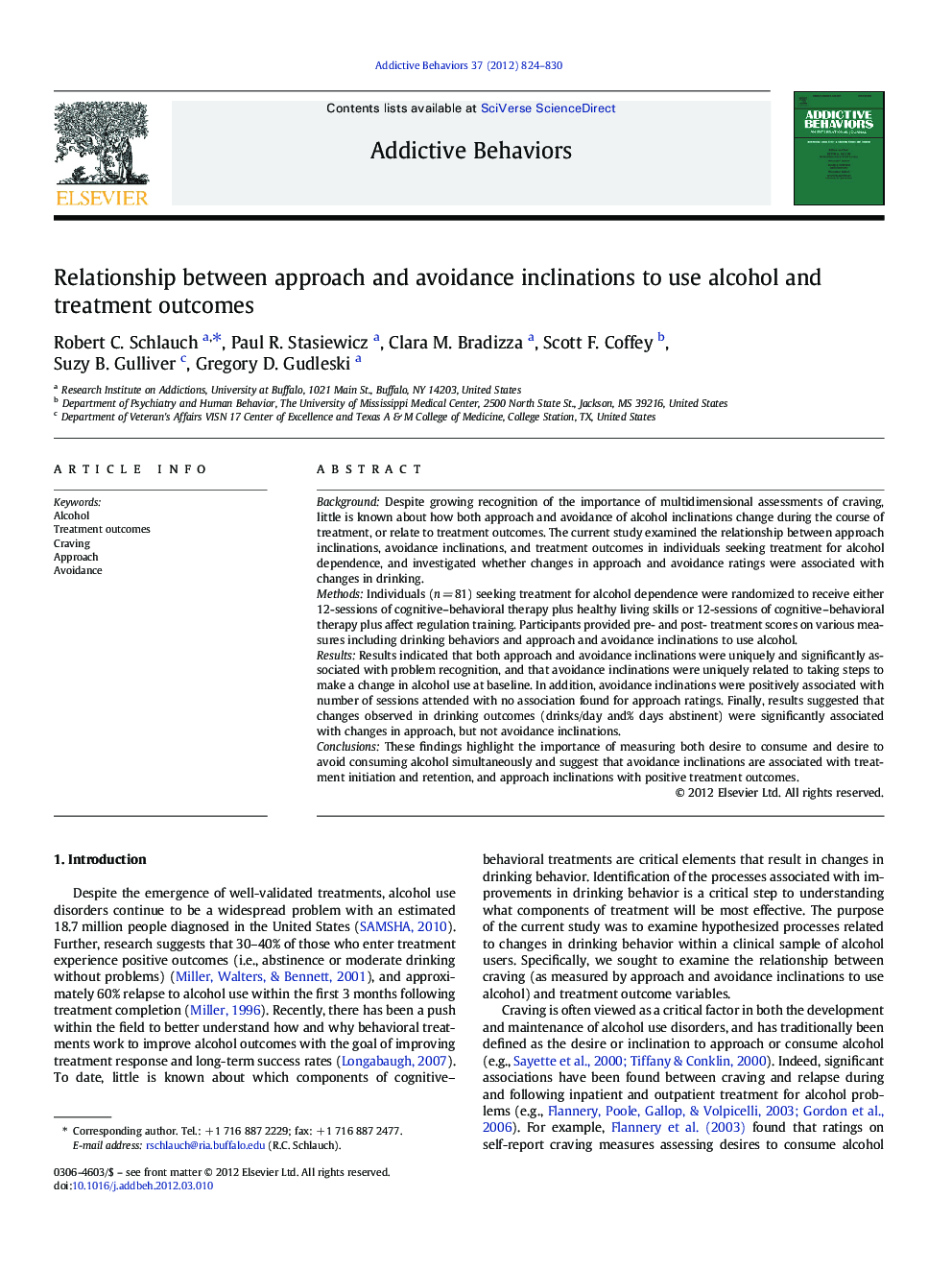| Article ID | Journal | Published Year | Pages | File Type |
|---|---|---|---|---|
| 899368 | Addictive Behaviors | 2012 | 7 Pages |
BackgroundDespite growing recognition of the importance of multidimensional assessments of craving, little is known about how both approach and avoidance of alcohol inclinations change during the course of treatment, or relate to treatment outcomes. The current study examined the relationship between approach inclinations, avoidance inclinations, and treatment outcomes in individuals seeking treatment for alcohol dependence, and investigated whether changes in approach and avoidance ratings were associated with changes in drinking.MethodsIndividuals (n = 81) seeking treatment for alcohol dependence were randomized to receive either 12-sessions of cognitive–behavioral therapy plus healthy living skills or 12-sessions of cognitive–behavioral therapy plus affect regulation training. Participants provided pre- and post- treatment scores on various measures including drinking behaviors and approach and avoidance inclinations to use alcohol.ResultsResults indicated that both approach and avoidance inclinations were uniquely and significantly associated with problem recognition, and that avoidance inclinations were uniquely related to taking steps to make a change in alcohol use at baseline. In addition, avoidance inclinations were positively associated with number of sessions attended with no association found for approach ratings. Finally, results suggested that changes observed in drinking outcomes (drinks/day and% days abstinent) were significantly associated with changes in approach, but not avoidance inclinations.ConclusionsThese findings highlight the importance of measuring both desire to consume and desire to avoid consuming alcohol simultaneously and suggest that avoidance inclinations are associated with treatment initiation and retention, and approach inclinations with positive treatment outcomes.
► We examined processes associated with drinking in an alcohol dependent sample. ► Links between approach and avoidance dimensions of craving and treatment outcomes. ► Approach and avoidance were uniquely associated with problem recognition. ► Avoidance was related to taking steps to change and number of sessions attended. ► Changes in drinking were associated with changes in approach only.
